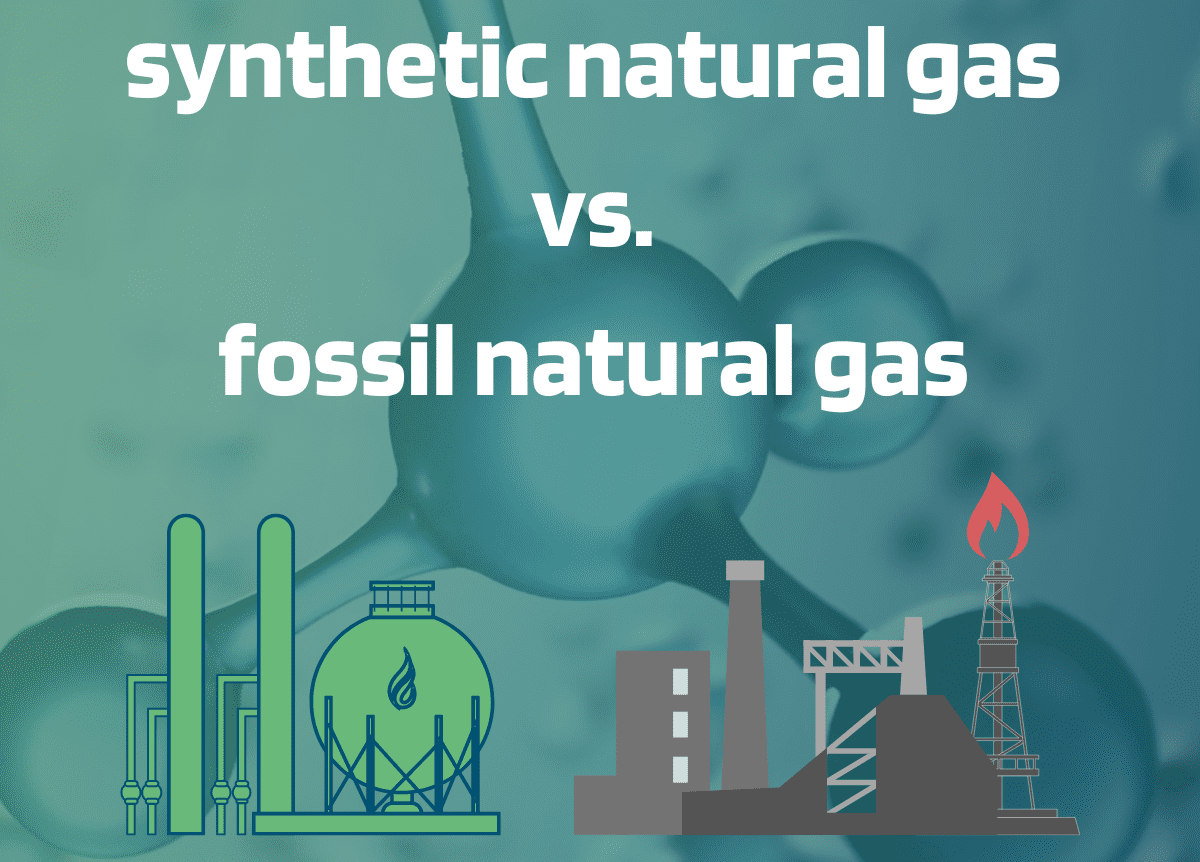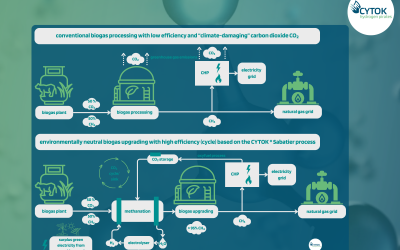picture: © CYTOK GmbH
What are the differences?
It is important for us to be transparent about our power-to-gas technology and to show that methane, when produced as synthetic natural gas, can have positive aspects for the energy transition in the context of climate change.
In the following we compare the two types of gas for you:
Origin
• fossil natural gas: Extracted from natural deposits using traditional methods, with negative impact on nature and the environment caused by the exploitation and transportation of fossil natural gas.
• synthetic natural gas: Created chemically by combining green hydrogen with recycled, biogenic or atmospheric CO₂.
Environmental impact
• fossil natural gas: Contributes to climate change through methane, CO₂ and nitrogen oxides emissions during extraction and combustion.
• synthetic natural gas: Produced from renewable energy sources, resulting in neutral emissions, contributing to a greener environment.
Efficiency and sustainability
• fossil natural gas: Combustion in energy converters leads to greenhouse gas emissions, with efficiency depending on the type of converter used. Additional energy losses and greenhouse gas emissions are generated during the extraction, transportation, and processing of natural gas.
• synthetic natural gas: Can be combusted in energy converters with the same efficiency, without greenhouse gas emissions.
Methane emissions and environmental damage
• fossil natural gas: Apart from CO₂ emissions, methane emissions occur, which contribute further to global warming.
• synthetic natural gas: Manufactured from renewables, thereby reducing natural methane emissions and environmental degradation. No methane slip, when used in closed combustion cycle.
Resource dependency and long-term impact
• fossil natural gas: Relies on finite resources, leading to geopolitical tensions and environmental risks.
• synthetic natural gas: Reduce dependence on fossil resources and long-term climate effects for the planet (methane emissions).
As you can see, synthetic natural gas presents a sustainable alternative that minimizes greenhouse gas emissions and prevents the major environmental damage caused by the exploitation and transportation of fossil natural gas.
Our power to gas technology avoids the disadvantages of fossil natural gas, as we operate the methane and CO₂ in a completely closed cycle. Thus, there are no emissions and no adverse effects for the environment.
Synthetic natural gas can also have the following terms, depending on the context:
· renewable natural gas
· e-methan
· substituted natural gas (SNG/Bio SNG)
· electric natural gas (e-NG)
Your hydrogen pirates from the Baltic Sea/Germany
Follow us also on LinkedIn and Instagram:




